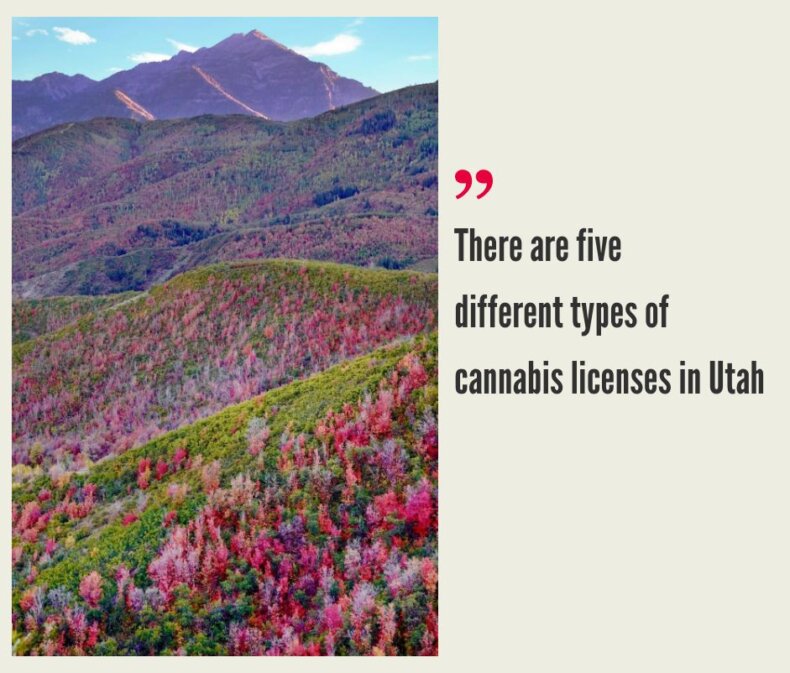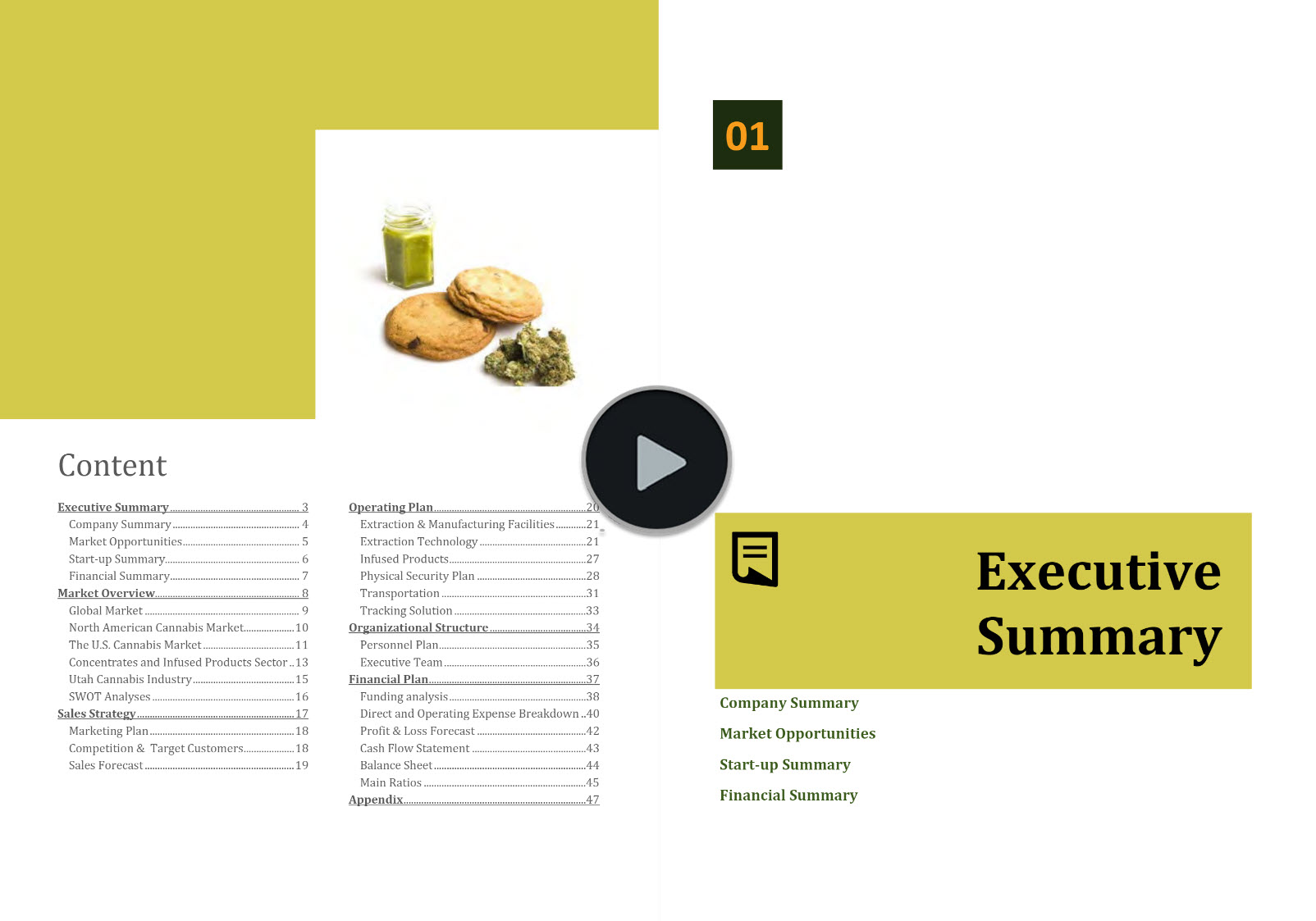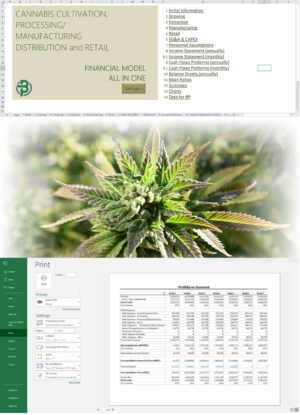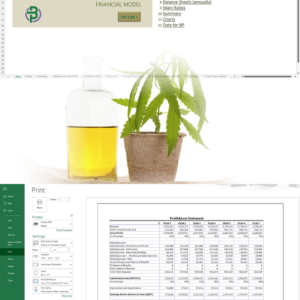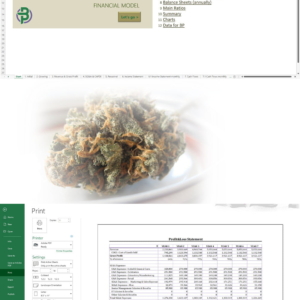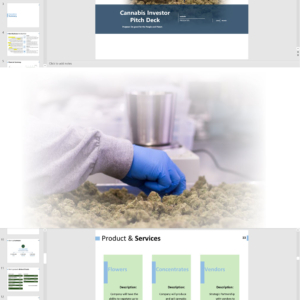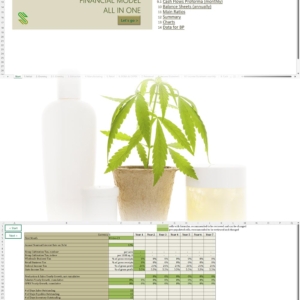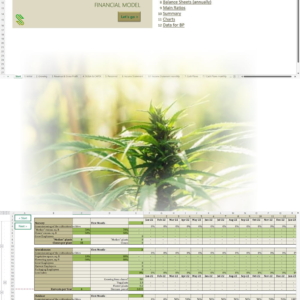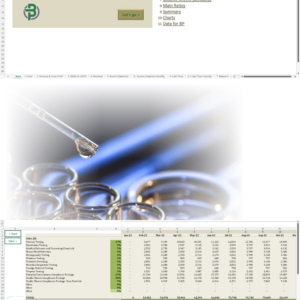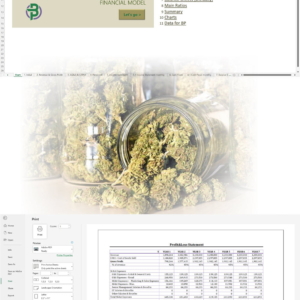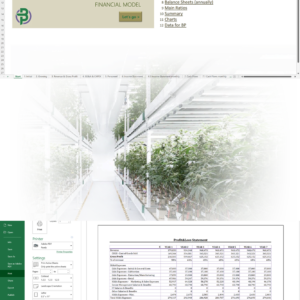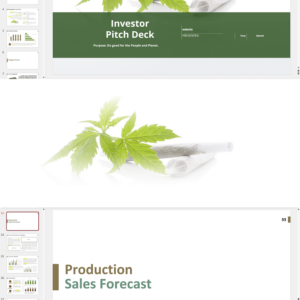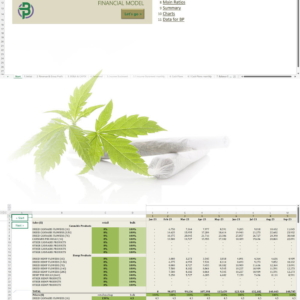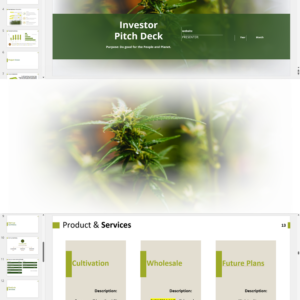- Understand regulatory and legal requirements. Do market research.
Research the laws and regulations governing medical-use cannabis for more information about the regulatory requirements for licensure where you want to start your business.
Utah Cannabis Legalization
Utah Proposition 2, the Medical Marijuana Initiative was on the ballot in Utah as an initiated state statute on November 6, 2018. Gov. Gary Herbert signed the measure into law on December 3, 2018. Utah’s first medical cannabis dispensary opened on March 2, 2020.
The Utah Department of Agriculture and Food oversees the licensing and regulation of medical cannabis production and distribution in the state. Cannabis pharmacies are regulated by the Utah Department of Health. There are currently 15 licensed medical cannabis pharmacies in operation, 15 licensed processors and 8 cultivators.
- Decide the type of cannabis business. Choose a location. Check local zoning regulations.
Cannabis Licenses Types Available in Utah
“A person that: possesses cannabis; grows or intends to grow cannabis; and sells or intends to sell cannabis to a cannabis cultivation facility, a cannabis processing facility, or a medical cannabis research licensee.”
Application and licensing fees:
- $2,500 application fee
- $100,000 license fee
“A person that: acquires or intends to acquire cannabis from a cannabis production establishment; possesses cannabis with the intent to manufacture a cannabis product; manufactures or intends to manufacture a cannabis product from unprocessed cannabis or a cannabis extract; and sells or intends to sell a cannabis product to a medical cannabis pharmacy or a medical cannabis research licensee.”
Application and licensing fees:
- $1,250 application fee
- $100,000 (Tier I), $35,000 (Tier II) license fee
“A person that: conducts a chemical or other analysis of cannabis or a cannabis product; or acquires, possesses, and transports cannabis or a cannabis product with the intent to conduct a chemical or other analysis of the cannabis or cannabis product.”
Application and licensing fees:
- $500 application fee
- $15,000 license fee
“A courier that: the department licenses in accordance with Section 4-41a-1201; and contracts with a home delivery medical cannabis pharmacy to deliver medical cannabis shipments to fulfill electronic orders that the state central patient portal facilitates.”
Application and licensing fees:
- $125 application fee
- $2,500 license fee
- $1,000 renewal
“A person that: acquires or intends to acquire medical cannabis or a cannabis product in a medicinal dosage form from a cannabis processing facility or another medical cannabis pharmacy or a medical cannabis device; or possesses medical cannabis or a medical cannabis device; and sells or intends to sell medical cannabis or a medical cannabis device to a medical cannabis cardholder.”
Application and licensing fees:
- $2,500.00 annual license fee
- $67,000 (Urban), $50,000 (Rural) license fee
- +$2,500 for Home Delivery
Cannabis Delivery in Utah
Medical cannabis delivery services are permitted in Utah by pharmacy licensee with a home delivery designation to a cardholder. Utah also adopted a model that allows courier services to be involved so that patients all over Utah can order their product and have it sent. The Utah Medical Cannabis Act requires all courier companies to obtain a license with the Utah Department of Agriculture and Food.
- Develop a solid cannabis business plan. Secure financing.
A typical cannabis business plan outline includes sections such as Executive Summary, Market Overview, Sales Strategy, Operating Plan, Organizational Structure (+ Diversity Plan) and Financial Plan.
'70% ready to go' business plan templates
We offer a wide range of '70% ready-to-go' cannabis business plan templates that will help you prepare a professional cannabis business plan document supported with expert financials and an investor pitch deck. All our templates are completely open and editable and you can use Word, Excel and PowerPoint to work with them.
- Prepare the required documents. Pay application fees. Submit applications.
An applicant should submits to the department:
(i) a proposed name and address where the applicant will operate;
(ii) the name and address of an individual who:
(A) for a publicly traded company, has a financial or voting interest of 2% or greater in the proposed cannabis establishment;
(B) for a privately held company, a financial or voting interest in the proposed cannabis establishment; or
(C) has the power to direct or cause the management or control of a proposed cannabis establishment;
(iii) a statement that the applicant will obtain and maintain a liquid cash account with a financial institution or a performance bond that a surety authorized to transact surety business in the state issues in an amount of at least:
(A) $100,000 for each cannabis cultivation facility and medical cannabis pharmacy for which the applicant applies; or
(B) $50,000 for each cannabis processing facility or independent cannabis testing laboratory for which the applicant applies;
(iv) an operating plan that complies with regulations and requirements;
(v) an application fee; and
(vi) a description of any investigation or adverse action taken by any licensing jurisdiction, government agency, law enforcement agency, or court in any state for any violation or detrimental conduct in relation to any of the applicant’s cannabis-related operations or businesses.
- Submit background check. Obtain the required licenses.
All owners applying or renewing must provide a background check, performance bond, or liquid cash account bond.
A person who receives a cannabis license, if the municipality or county where the licensed cannabis establishment will be located requires a local land use permit, shall submit to the licensing board a copy of the licensee’s approved application for the land use permit within 120 days after the day on which the licensing board issues the license.
- Register your business as an employer and a tax payer.
- Keep track of your ongoing compliance requirements.
Physical security measures, good production practices, packaging, labelling, transport and reporting requirements, taxes and more.
Production license holders (cultivation, processing, testing) must renew their license each year at a Cannabis Production Establishment Licensing Advisory Board meeting. Renewal dates occur throughout the year and renewal documentation must be submitted no later than the documentation deadline that corresponds to the meeting prior to the renewal expiration date. Renewal is not considered to be complete until all applicable fees are paid and the facility’s bond is in good standing.
Utah Cannabis Taxes
The sale by a licensed medical cannabis pharmacy of the following is not subject to the state sales tax:
- cannabis in a medicinal dosage form; or
- a cannabis product in a medicinal dosage form.
The sale of a medical cannabis device (means a device that an individual uses to ingest or inhale cannabis in a medicinal dosage form or a cannabis product in a medicinal dosage form) by a medical cannabis pharmacy is subject to the state sales tax.
Main steps in short
- Understand regulatory and legal requirements. Do market research.
- Decide the type of cannabis business. Choose a location. Check local zoning regulations.
- Develop a solid business plan. Secure financing.
- Prepare the required documents. Pay application fees. Submit applications.
- Submit background check. Obtain the required licenses.
- Register your business as an employer and a tax payer.
- Keep track of your ongoing compliance requirements.
Cannabis Processing/Manufacturing Business Plan Sample, Utah
'70% ready to go' business plan templates
Our cannabis financial models and cannabis business plan templates will help you estimate how much it costs to start and operate your own cannabis business, to build all revenue and cost line-items monthly over a flexible seven year period, and then summarize the monthly results into quarters and years for an easy view into the various time periods. We also offer investor pitch deck templates.
Best Selling Templates
Hemp/CBD business plan templates are available at hempcbdbusinessplans.com.
Utah Cannabis Business FAQs
What are the different types of cannabis licenses in Utah?
There are five different types of cannabis licenses in Utah, including cannabis cultivation facility, cannabis processing facility, cannabis pharmacy, independent cannabis testing laboratory and medical cannabis courier.
